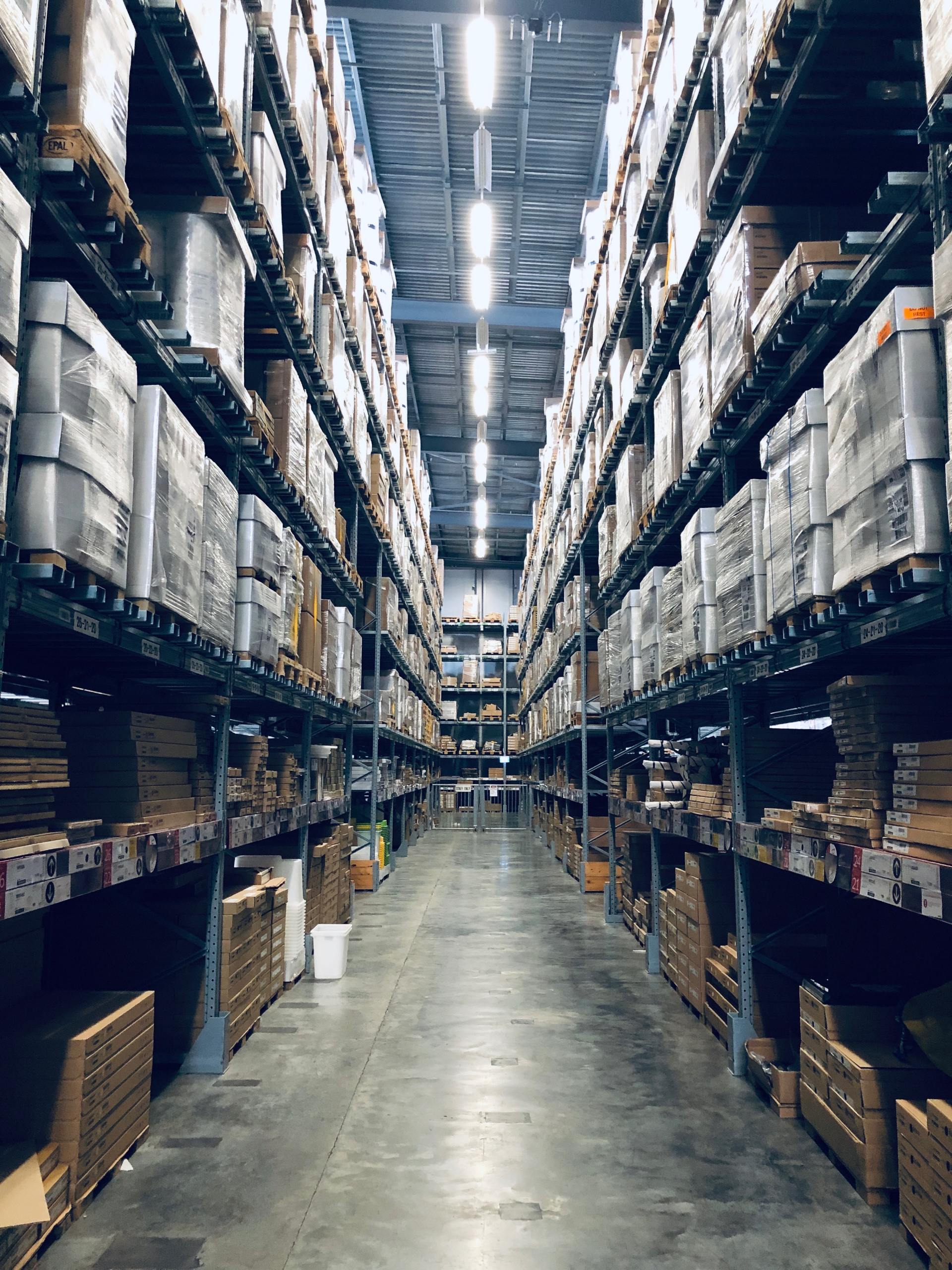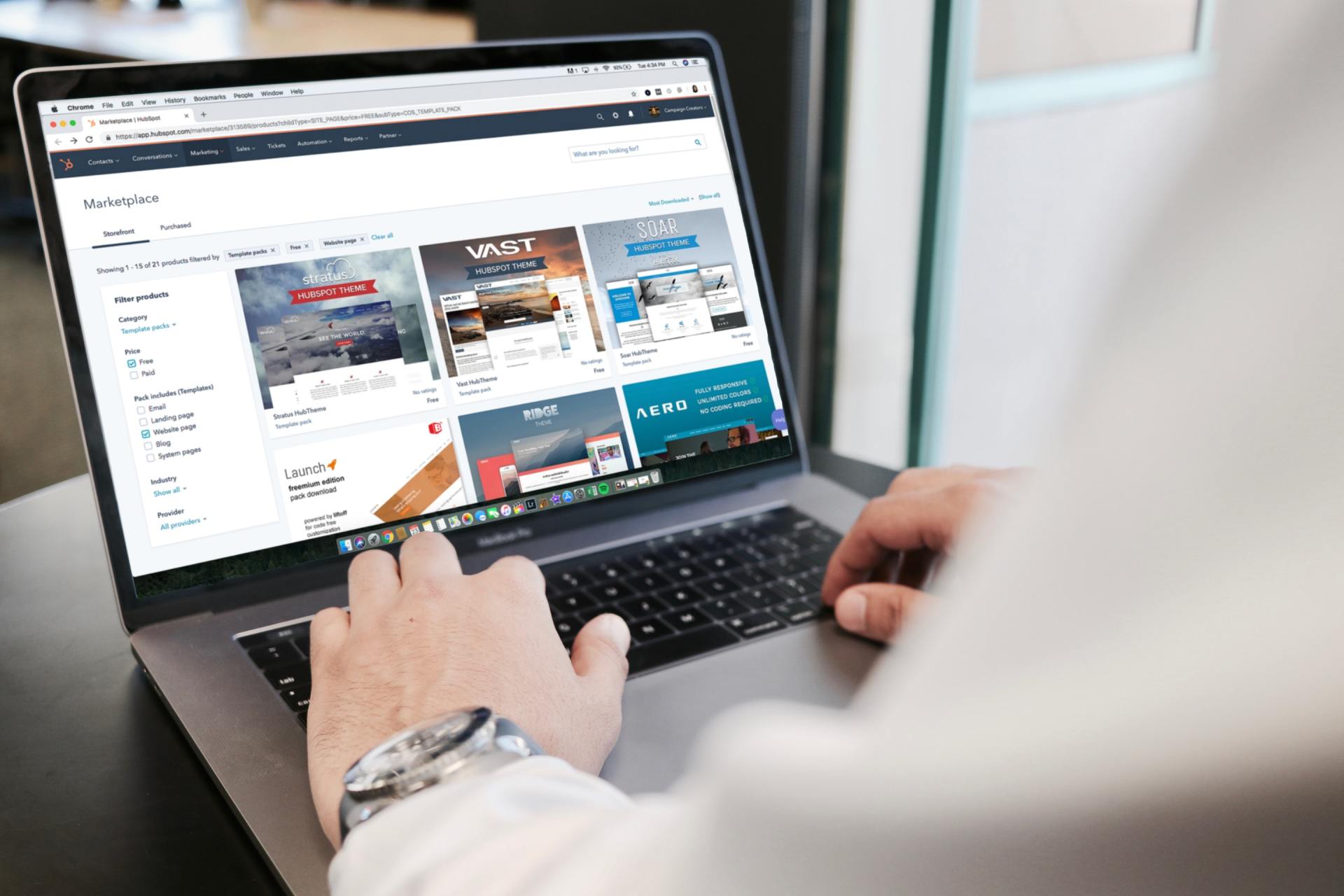Not all 3PLs are created equally
March 2, 2021
Many businesses offer "3PL services". Unfortunately, not all of them will deliver the seamless cart to letterbox experience that your shoppers expect.
Many businesses offer "3PL services". Unfortunately, not all of them will deliver the seamless cart to letterbox experience that your shoppers expect.
The impact can be significant with research from Metapack finding:
- 38% of shoppers will never shop with a retailer again if they had a poor delivery experience.
- 25% of shoppers have cancelled an order because of slow delivery speeds.
Based on my client's prior experiences, I've classified 7 types of businesses that offer "3PL services":
1. THE OVER-PROMISER
This is the operator that says “Yes” to everything during the quoting stage but has little capability to deliver on their commitments. As a result, things inevitably fall over and orders are delayed or contain errors. While an Over-Promiser sounds good at first, the impact of poor service on your shopper experience is not worth the risk.
2. THE ADMIN MAKER
Related to The Over-Promiser, the Admin maker seems to be an expert at creating admin for you. Whether it’s the process for loading orders, checking the status of orders, matching invoices back to actual orders, they go out of their way to ensure you have more admin to work on than when you weren’t with them.
3. THE CONTRACT MANUFACTURER
As a contract manufacturer, there are peaks and troughs in demand. Therefore, it makes sense for them to offset this with more stable income. This can often lead to some cheap rates as they are often just trying to cover fixed costs. The risk is that it’s all rosy until they have a peak for their contract manufacturing side of the business and your orders have to take a backseat.
4. THE SPARE SPACE SELLER
Unfortunately, spare space in a warehouse does not maketh a good 3PL. Once again, you may be offered some cheap space so a business can cover their fixed costs, however you need to ensure they have the processes in place to support your fulfilment...especially at peak times. Often their systems and processes are set up to support their own business and so you’ll need to fit in to their way of doing things.
5. THE DM MAILHOUSER
Similar to the Spare Space Seller, the Direct Marketing Mailhouser often provides a 3PL service as an add on to their core business. While this may work for small daily orders, they often struggle when your Sales spike as they don’t have the core systems and trained staff to support peak Sales periods.
6. THE BLACK HOLERS
This is the 3PL that is happy to accept your product but gives you no visibility of your orders or inventory…oh…and if you have any queries…don’t expect to get a response. In fact, I had a client moving from a Black Hole 3PL and she wasn’t even sure whether she would get all of her stock back.
7. THE TRUE 3PLs
These are the 3PLs whose core business is to ensure the success of your order fulfilment. They know their role and their impact on your customers’ experience and they don’t do anything to jeopardise it. Their systems are designed for ecommerce, integrate into your shopping cart, and allow you to access order/inventory data at any time. They’ll say yes as often as possible to your requests without jeopardising their ability to deliver a streamlined solution no matter what the demand. Speaking of demand, their systems, processes and staffing levels are all designed to ensure orders go out on time…even during peak Sales’ periods.
At OmniGrowth, we only deal with the The True 3PLs. These are the 3PLs that provide the right balance of cost, service and reliability. While the others may be able to provide a cheap fix, it’s the The True 3PLs that are going to provide the service that ensures your shoppers want to buy from you again.
Interested to Find out More?

3PL logistics is a rapidly growing segment of online commerce 3PL or third-party logistics is well known in supply chain management, but if you’re new to the industry, you might not be aware of the in’s and out’s of 3PL and what is included in the process. If you have ever wondered what is 3PL logistics and what it means, we take the time in this article to explore the process and provide a deep dive into the world of warehousing, fulfilment services and distribution. What is 3PL logistics and what does it mean? 3PL in simple terms means third party logistics, or the provider or outsourced logistics services that often includes procurement, fulfilment, transportation and even warehouse storage. For example, if you are selling a product, a 3PL arrangement will handle the consumer ordering process, transportation of product, online steps for fulfillment and ensuring the product winds up in the hands of the consumer in a fast and reliable time. 3PL offers plenty of cost savings to businesses allowing businesses to scale when they start growing, and removing the need for businesses to invest in their own offices, warehouses and distribution networks. Many eCommerce stores use 3PL for a fast and convenient solution for supply chain management. Why is 3PL so important? 3PL is growing in popularity among online stores and eCommerce groups due to the affordability and scalability for retail businesses. 3PL companies are specialists in what they do and offer cheaper rates for shipping, warehousing and general supply chain management, taking the hard work off businesses hands and making the process seamless and reliable. Customers benefit from having their freight negotiated and handled by experts and gain back significant time in their business. Customers that are focused on growth and streamlining their supply chain turn to 3PL to ensure strong profit margins and avoid expensive storage space and costs of fulfilling and shipping their product themselves. Third-party logistics providers are all unique, however, their capabilities include a complete solution including warehousing or storing products, transporting products, distributing the products and also shipping and receiving products. Advantages and disadvantages of 3PLs When you are considering a 3PL company, it is important to understand there are pros and cons for both, and while automating your fulfilment might seem like a no brainer - you should be aware that there are negatives and considerations to be aware of. Pros for 3PL companies Reduce your company overheads - this is a big factor for many businesses that move towards 3PL. Not needing to lease warehouse space and hire your own fulfilment team means that the costs for running your business are capped based on your fulfilment and you can re-direct funds towards growth and expansion. Expand internationally - often the concept of expanding overseas is too much of a headache for many companies, however, 3PL will take care of all the documentation, accounting, paperwork and duties associated with shipping your product overseas. You can even engage a 3PL in the country you are looking to expand into, taking advantage of shipping and delivery times and boosting customer service experience. Use specialists in 3PL and fulfilment - when you engage the services of a 3PL company, you are engaging the services of a specialist in order fulfilment, and supply chain management. We all can’t be experts in our chosen business, and 3PL professionals are the leaders in transportation services, distribution, pick and pack, and warehousing - allowing you to focus on the areas you specialise in. In many cases the SLA (Service Level Agreement) for customers includes pick accuracy of 99% or more, giving you the utmost in reliability and professionalism. Fast delivery - one of the most advantageous features of 3PL is fast shipping. Optimizing the delivery of products will boost customer satisfaction and can often result in return customers and positive word of mouth. In addition, national 3PL networks can enable you to place your stock across the country, cutting down shipping times as well as costs. Cons for 3PL companies High set up fees - one of the big negatives and major deterrents for many companies considering 3PL is the high cost for set-up fees. Kicking off a 3PL contract can mean a range of processes, and often this cost is not something many businesses are willing to outlay until the demand is at a level where the business is unable to cope with the growth. OmniGrowth is a unique service that has selected 3PL’s who are easy to set up with, reducing the thousands of dollars of onboarding costs that can occur with some 3PL providers. Off-site and not as accessible - for many companies, the ease of being about to check your own records and quality control measures quickly and without delay can help in the event of a customer complaint, however, 3PL is slightly removed and inventory is not always as accessible in all cases which means there are a few extra steps which many businesses can find frustrating. On top of this, this can sometimes affect customer service, leading to challenges for both the business and the consumer. OmniGrowth has taken time to pre-screen and select only 3PL’s which have real time inventory visibility - giving you the most up to date information on your stock holdings. What is 4PL and how is it different to 3PL? The big difference when it comes to logistics is 3PL and 4PL is outlined below. 3PL - third-party logistics - this is basically when an organisation manages the product in the supply chain process, however, the transportation or logistics can be outsourced to another company. 4PL - fourth-party logistics - in this case, the logistics activities are managed by the company and all of the supply chain from start to finish is under the one provider. There will also be a case where as supplies run low, the 4PL will contact the company to advise inventory is needing a top-up. With so many party logistics 3PL and fulfilment services available for retailers, in particular, 3PL is a viable option for those wanting to engage in a cost-effective and fast shipping and fulfilment solution. For many companies wishing to expand into new markets, grow into additional countries or streamline their fulfilment, 3PL is an exciting option to boost customer service and take advantage of professional transportation and warehousing options that just aren’t available for many small retailers.

Australia is fast becoming an epicentre of e-commerce, with plenty of exciting ecommerce sites popping up left, right and centre. Some of the top e-commerce sites such as eBay are well known in the marketplace, but what about the other not so well-known sites that are kicking goals and driving some serious traffic and sales? In this article, we explore some of the top sites in Australia that are successfully making a name for themselves in online shopping and online marketplaces. With some Australian businesses hitting the top ten and other global giants making the list, e-commerce is certainly alive and thriving in Australia with the e-commerce environment a serious money-spinner for businesses focusing on driving digital channels. Size of the e-commerce market in Australia Australians use both digital devices such as iPad, iPhones and mobile devices as well as computers to explore e-commerce marketplaces both locally and abroad. IBISWorld Industry - Online Shopping in Australia published in June 2019 determined that the online shopping industry between 2018 - 2019 generated $23.7 billion in revenue with an annual growth rate projected between 2019 and 2024 of 7.8%. With 57,000 businesses in the industry, the industry has seen significant influx in the last five years in particular with Amazon Australia launching and a wide range of other online retailers moving to digital mediums from traditional bricks and mortar stores. Faster internet and more tech-savvy consumers has driven industry performance and transformed the online shopping phenomenon. Australians are making a move to digital marketplaces, particularly during recent COVID-19 lockdowns thanks to the ease of use, delivery and simple payment options. Not only can consumers shop from their iPhone or hand-held device at a time and location that suits them, e-commerce is available 24 hours a day, which makes the industry a tremendous opportunity for many goods and services providers. Top e-commerce stores in Australia to watch Many traditional bricks and mortar stores and retailers have moved to e-commerce in the past decade such as JB HI-Fi, Woolworths, Coles and David Jones, as the industry continues to grow and take hold of a higher proportion of the market. Kogan - Australian e-commerce giant Kogan is a success story for the industry, with the business founded by Ruslan Kogan in a Melbourne garage in 2006 and now growing into a billion-dollar business in less than 15 years. COVID-19 has been a positive boost for Kogan.com, with online shoppers pushed online, particularly for electronics and home technology such as computers, smartphones, and appliances. eBay Australia - one of the first and probably most well-known e-commerce marketplaces for online shoppers, eBay was created in the US as an innovative platform and marketplace that connects shoppers and businesses through an online auction platform. Amazon Australia - an online marketplace for everything from electronics, books, sporting goods, computers, and home products, Amazon Australia boasts millions of products and lots of deals that entice millions of customers. A big feature of Amazon Australia is the free two-day shipping available on the platform. Catch.com.au - created in Australia, Catch.com.au launched in 2006 by two brothers who were looking to tap into the e-commerce market and embrace the digital world of shopping. The company is now part of Wesfarmers Group, and the online store is listed as one of Australia’s top retailers. Chemist Warehouse - this online and bricks and mortar chemist retailer owned by the Victorian-based Verrocchi and Gance families, continues to be at the forefront of internet pharmacy in Australia. The Chemist Warehouse group now employs over 8000 staff members, controlling over 400 pharmacies and is Australia's largest pharmacy retailer with an estimated market share of around 50% of the Australian market. JB Hi-Fi - Established in 1974 by Mr. John Barbuto (JB) in East Keilor, Victoria, the focus of the business was to offer specialist hi-fi equipment at affordable prices. The business sold in the early 1980’s and started to branch out into multiple stores before making the move to include online shopping, and in 2003 the business was floated on the Australian Stock Exchange. Big W - In May 2010, Australian discount retailer Big W, operated by the Woolworths Group, launched their online store kicking off a new era for the national retail giant. The online store carries an extended range of items from categories including nursery, entertainment and electronics that can only be bought online and offers a super-fast postage option or pick-up in store. Coles - Coles has over 2,500 retail outlets nationally, and is a leading retailer in the fresh food and supermarket e-commerce space. Over the past few years, the retailer has made a dedicated push towards digital investing in-home delivery options with online ordering, click and collect and more. Officeworks - After starting the business 25 years ago, Office Works has embraced a strong digital strategy following acquiring Geeks2U and championing a new paid parental leave policy ‘Growing Families’. With 7,000 store team members, the business targets a wide audience of consumers including parents, students and personal shoppers to micro, small and medium businesses. The key to the success of the stationary and business supply chain is their use of technology to drive store and online fulfilment. With a high internet penetration of 21 million in Australia having access to the web, Aussies are ranked in the top 10 for the size of the e-commerce market in the world by revenue. AfterPay and ZipPay have helped to boost the market size, with buyers being able to pay off purchases in instalments, often with no interest. Whether it is supermarkets, pharmacy, health, electronics or discount stores, e-commerce is a thriving market in Australia and continues to grow year on year. OmniGrowth is a leading 3PL warehousing and logistics provider which can help you compare, negotiate with 3PLs across Australia.

We were recently humbled to receive a Vendors in Partnership (VIP) award nomination. While our greatest reward comes from our client's appreciation and success, it's always nice to receive acknowledgement from such a respected ecommerce industry organisation, RetailGlobal.com Congrats also to our fellow nominees as I know you're as passionate about ecommerce as we are and you deserve the recognition.
